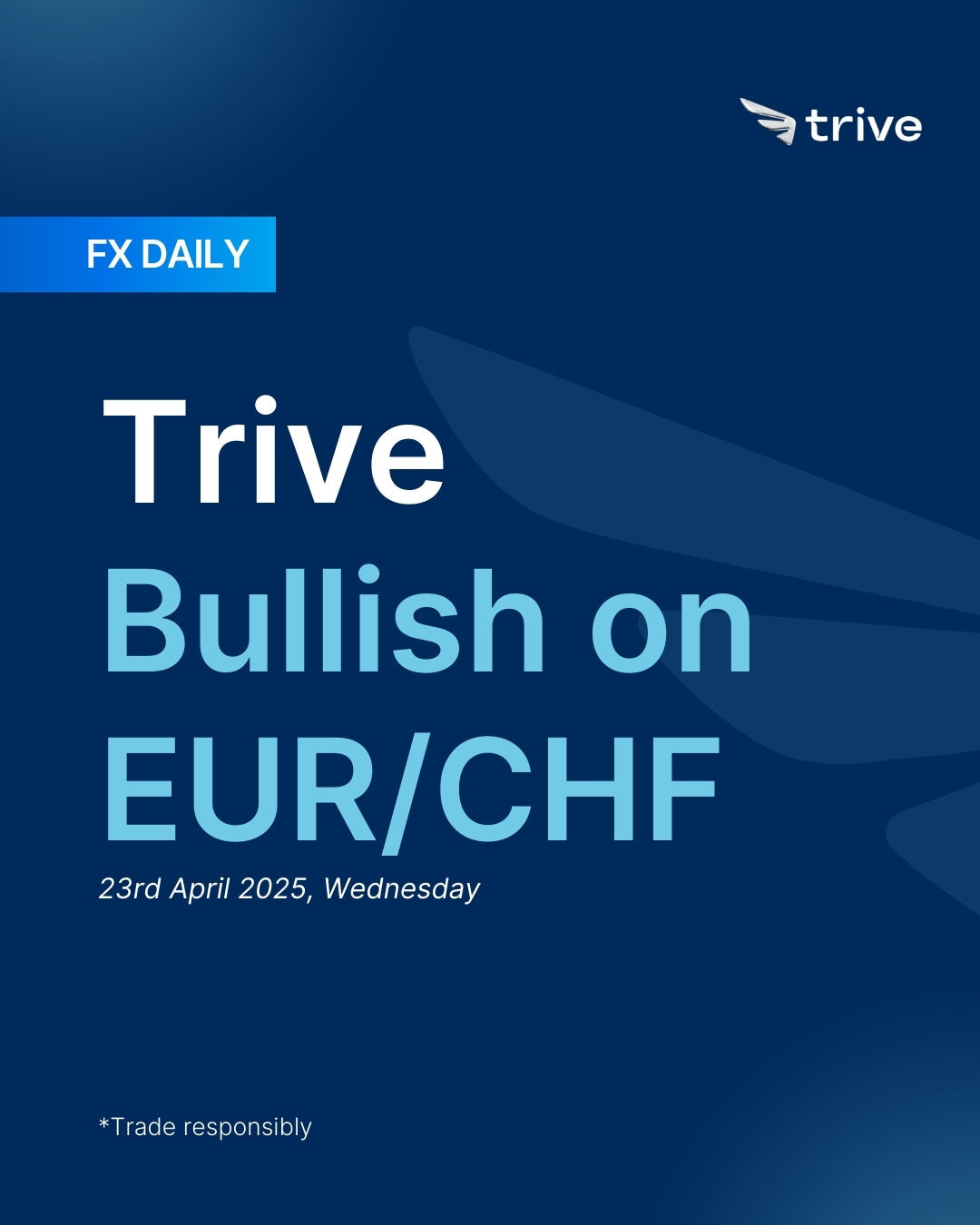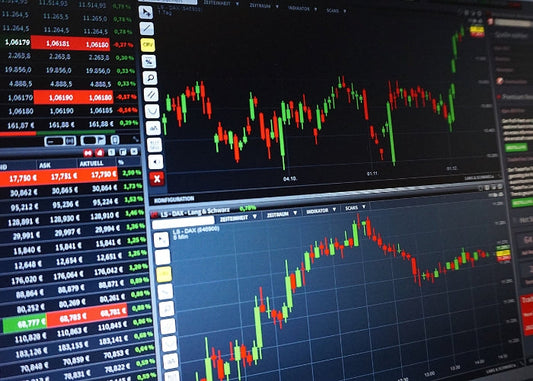FX Daily: Trive Bullish on EUR/CHF

The baseline outlook for the EUR remains bullish, as it stands as the second most liquid currency globally, particularly gaining favor when the USD loses market appeal. In contrast, the CHF remain the best funding currency among the G10 FX, despite the recent strength from uncertainty environment.
EUR: New King
The EUR has been one of the top-performing currencies since the U.S. tariff announcement, outperforming even traditional safe-haven currencies like the JPY and CHF. The key driver behind this strength is the euro's status as the second most liquid currency globally and its role as a preferred alternative to the U.S. dollar in global FX reserves. For now, as long as market uncertainty over U.S. trade policy persists and sentiment remains negative toward the USD, the EUR may continue to assert dominance as the ‘King’ of the G10 FX space.
On the domestic front, the key event of the week was the ECB meeting. As widely expected, the ECB delivered another 25bps rate cut in April, bringing the policy rate down to 2.25%. In its latest MPS, the ECB removed the reference to policy being “restrictive,” suggesting that the stance has approached a broadly neutral level. However, President Lagarde maintained a meeting-by-meeting approach to future decisions. During the press conference, Lagarde placed significant emphasis on the downside risks to growth stemming from rising trade uncertainty, while noting that the inflation implications of these developments remain unclear. She clarified that no policymakers supported a 50bps cut, and stimulus discussions were not on the table. Regarding the removal of the term “restrictive,” Lagarde explained that assessing restrictiveness is currently meaningless, as the concept of a neutral rate is only valid in a ‘shock-free’ environment. Overall, the ECB communicated a slightly more dovish tilt than anticipated, with a stronger focus on growth risks over inflation pressures. This strengthens the case for further rate cuts ahead.
In terms of FX, the usual co-movement between exchange rates and rate differentials has weakened, largely due to eroding confidence in the USD following Trump’s trade policy moves. Should interest rate spreads once again become the main driver of FX, the dollar could recover. However, markets currently doubt this scenario, and a meaningful reversal in Trump’s trade policy would be required to trigger a sustained USD rebound. As a result, while the ECB has introduced some dovish signals, it remains a secondary driver for the EUR at this point, as broader market sentiment continues to be guided more by growth concerns than interest rate differentials.
Looking ahead, the eurozone calendar is relatively light, with the main highlight being the April preliminary PMIs. However, the overarching theme in the FX market will likely remain centered around U.S. trade policy developments. Therefore, barring any significant positive shifts in U.S.-China trade policy, the baseline outlook for the EUR remains well supported, particularly due to its status as the world’s second most liquid currency.
CHF: Funding currency
The CHF has emerged as the top-performing G10 currency following the announcement of Trump’s new tariffs, benefiting strongly from its traditional safe haven appeal. The intensification of U.S.-China trade tensions has further boosted demand for the franc as investors seek safety amid rising global uncertainty. While persistent strength in the CHF could eventually pose challenges for the Swiss National Bank (SNB), the risk of direct FX intervention remains perceived as limited for now. This cautious stance is largely driven by the potential political and diplomatic consequences of aggressive, one-sided intervention, especially the threat of being labeled a currency manipulator by the U.S. Treasury—an outcome that could lead to retaliatory tariffs on Switzerland.
Looking ahead, the CHF calendar is quiet, with no major domestic data or policy events on the horizon. As a result, the franc is expected to continue trading off broader global risk sentiment. In the current climate of elevated uncertainty and risk aversion, the CHF should remain well-supported. However, despite recent gains, the franc still stands as the most attractive funding currency in the G10 space. Should global risk sentiment improve significantly—particularly if the U.S. trade policy shifts in a more market-friendly direction—the CHF could gradually revert to its traditional role as a funding currency in carry trades.
 EUR/CHF 4H
EUR/CHF 4H
Disclaimer
This material is provided for informational purposes only and does not constitute financial, investment, or other advice. The opinions expressed in this material are those of the author and do not necessarily reflect the views of Trive International. No opinion contained in this material constitutes a recommendation by Trive International or its author regarding any particular investment, transaction, or investment strategy. This material should not be relied upon in making any investment decision.
The information provided does not consider the individual investment objectives, financial situation, or needs of any specific investor. Investors should seek independent financial advice tailored to their individual circumstances before making any investment decisions. Trive International shall not be liable for any loss, damage, or injury arising directly or indirectly from the use of this information or from any action or decision taken as a result of using this material.
Trive International may or may not have a financial interest in the companies or securities mentioned. The value of investments may fluctuate, and investors may not get back the amount they originally invested. Past performance is not indicative of future results.
For more information about Trive International, please visit http://trive.com/int
Additional Information
Investing involves risk, including the potential loss of principal. Diversification and asset allocation strategies do not ensure a profit or guarantee against loss. The content in this material is subject to change without notice and may become outdated or inaccurate over time. Trive International does not undertake any obligation to update the information in this material.
By accessing this material, you acknowledge and agree to the terms of this disclaimer. If you do not agree with these terms, please refrain from using this information.
No comments
Home
Trive
TriveHub





0 comments